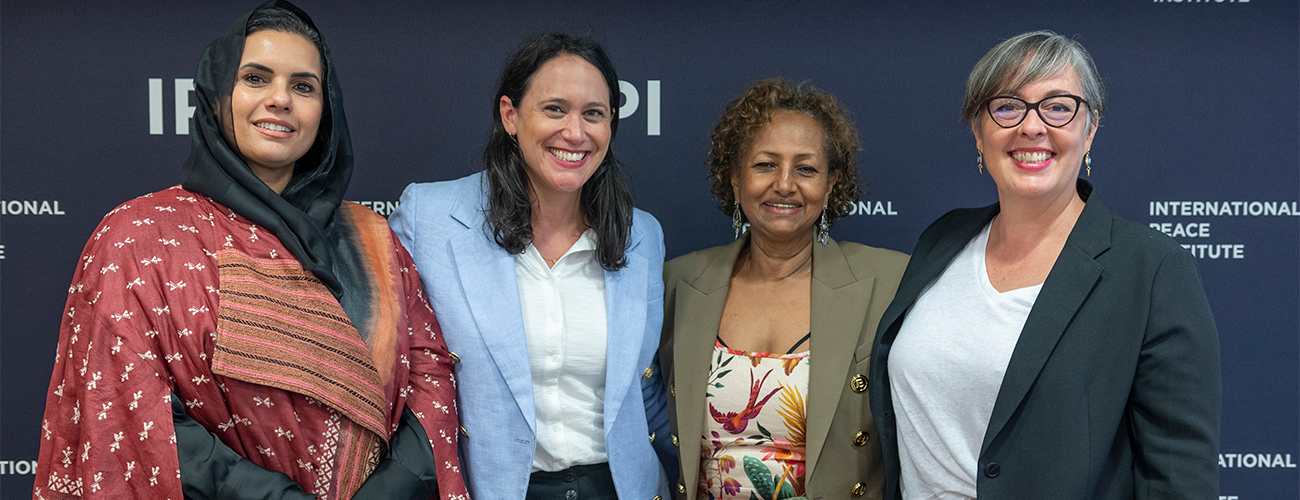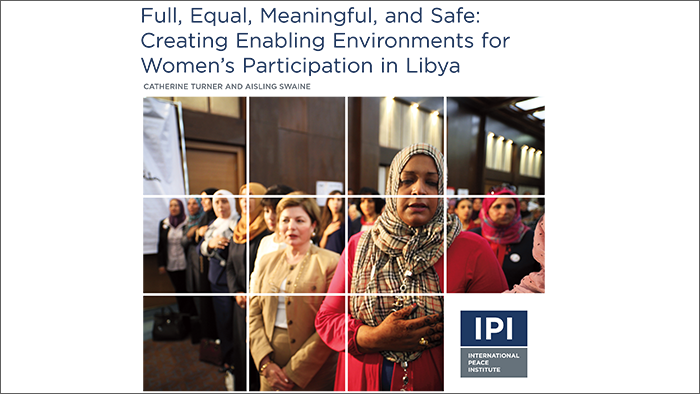The women, peace, and security (WPS) agenda consists of four pillars, including participation and protection. However, engagement on these pillars has often been disconnected, with inadequate attention to the relationship between them. This can undermine progress on both pillars, as efforts to promote women’s meaningful participation in peacebuilding processes fall short without adequate protection measures that make that participation possible.
On July 26th, IPI hosted a launch event to share research findings on the nexus of women’s protection and participation in Libya presented in a new report authored by scholars Catherine Turner and Aisling Swaine. This report builds on previous IPI research focused on protection and participation in Northern Ireland.
During the event, participants heard directly from women representing civil society organizations in the region. Founder and CEO of Karama Hibaaq Osman discussed her work with the WPS agenda and some of the challenges she’s encountered. Osman highlighted Resolution 1325, which is non-binding and falls to the discretion of governments, many of whom do not see it as a priority, leaving its success in the hands of civil society and women’s organizations. While discussing gender parity and the relevancy of women’s integration into specific male-dominated roles, such as defense minister or director of the CIA, Osman urged participants to ask the question “Is the military becoming feminized, or are the women becoming militarized?”
Co-Founder and CEO of the Libyan Women’s Platform for Peace Zahra’ Langhi, drew upon her 12 years of activism in Libya and asserted that women’s participation is grounded in traditional, customary mechanisms and local contexts, “It is not enough to empower women, we need to dis-empower warlords.”
UN Women Policy Specialist Sarah Taylor outlined key recommendations, one of which includes responding to evolving threats and evolving participation spaces, both online and offline. Senior Gender Advisor and Chief of Gender Equality Section, United Nations Support Mission in Libya (UNSMIL) Nada Darwazeh expressed that we don’t need women with a PhD or women to be fully engaged in politics: “What matters is that they’re there.”
The launch event provided an opportunity to share the report’s findings with policymakers and to engage in conversation with other researchers and practitioners. It further sought to help member states and UN officials align policies related to women’s protection and participation with the realities on the ground.
Welcoming Remarks:
Adam Lupel, Vice President and Chief Operating Officer, International Peace Institute
Speakers:
Catherine Turner, Associate Professor of International Law and Deputy Director of the Durham Global Security Institute, Durham Law School (virtual)
Aisling Swaine, Professor of Gender Studies in the School of Social Policy, Social Work and Social Justice, University College Dublin (virtual)
Hibaaq Osman, Founder and CEO of Karama
Zahra’ Langhi, Co-Founder and CEO of the Libyan Women’s Platform for Peace
Nada Darwazeh, Senior Gender Advisor and Chief of Gender Equality Section, United Nations Support Mission in Libya (UNSMIL) (virtual)
Sarah Taylor, Policy Specialist, UN Women
Moderator:
Phoebe Donnelly, Senior Fellow and Head of Women, Peace, and Security, International Peace Institute









